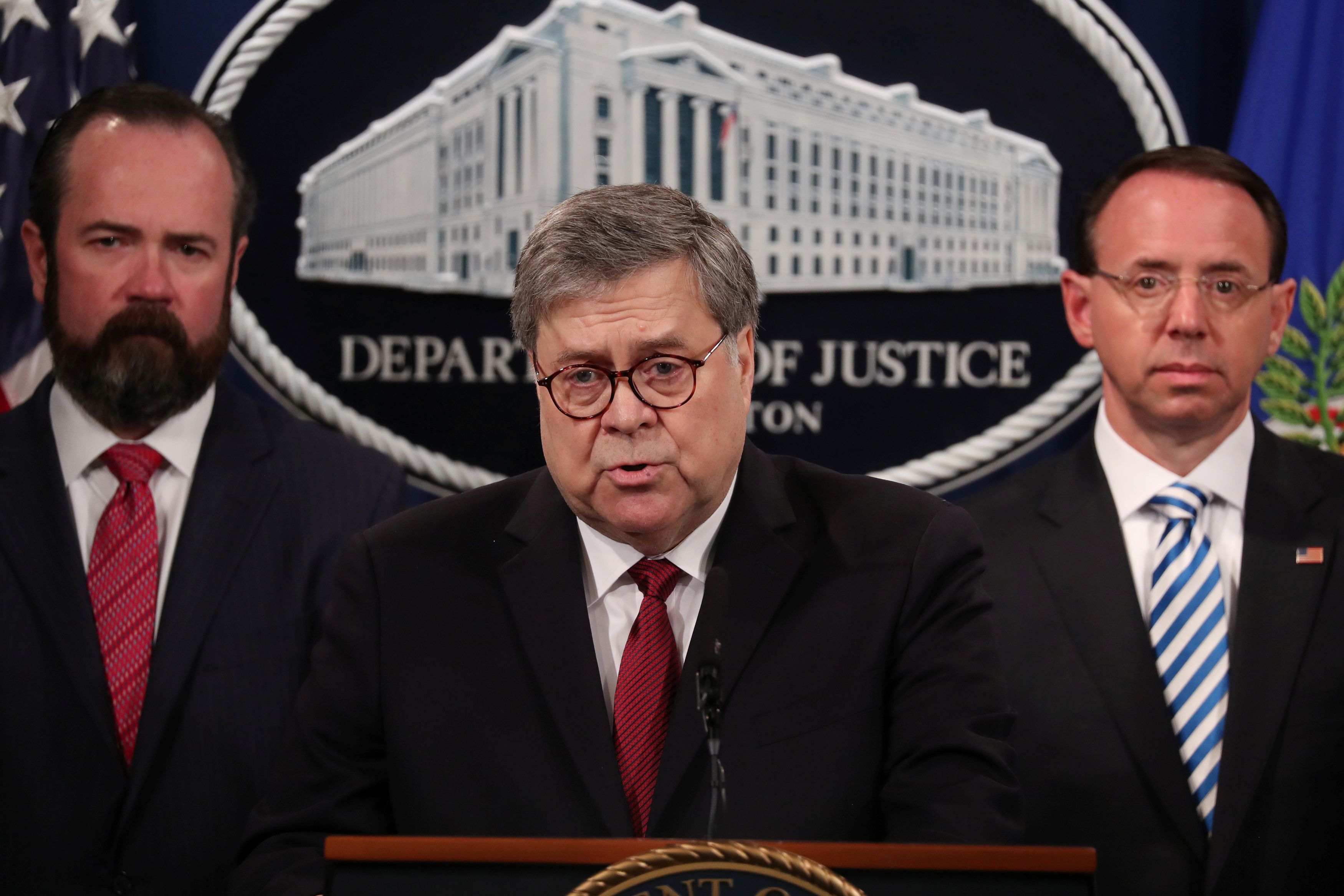April 18, 2019
The release of the redacted version of Special Counsel Robert Mueller's confidential "Report on the Investigation into Russian Interference in the 2016 Presidential Election," has addressed important questions and left others unanswered. (A public version of the report can be seen here).
Here's our take on where this story is headed:
Are there revelations in the report that enough people might consider evidence of "high crimes and misdemeanors" to add political pressure on House Speaker Nancy Pelosi to move toward impeachment?
Possibly.
The Mueller report asserts that the special counsel's team did not find evidence that President Trump or anyone associated with his campaign helped the Russians interfere in the election, and Attorney General William Barr has ruled that Trump will not be prosecuted for obstruction of Mueller's investigation.
But impeachment is a political, not a legal, process.
In fact, on the question of the Trump campaign's coordination with Russia, Mueller wrote the investigation was "materially impaired" by witnesses who lied, refused to testify, deleted emails, or used encrypted apps to communicate. As a result, Mueller added this crucial comment: "The Office cannot rule out the possibility that the unavailable information would shed additional light on (or cast in a new light) the events described in the report."
On the question of obstruction of justice, Mueller notes on page 182 of the report that "If we had confidence after a thorough investigation of the facts that the President clearly did not commit obstruction of justice, we would so state… We are unable to reach that judgment. Accordingly, while this report does not conclude that the President committed a crime, it also does not exonerate him."
Further, the report states that "we concluded that Congress has the authority to prohibit a President's corrupt use of his authority in order to protect the integrity of the administration of justice." Many Democratic lawmakers will view that as an invitation, maybe an exhortation, to act.
Pelosi has worked hard in recent weeks to beat back pressure from Democrats to push for impeachment because she believes such a move would damage her party politically. But there are many details in the Mueller report that will make that more difficult.
Where is Robert Mueller?
During his press conference before the report's release, Barr said, "I have no objection to Bob Mueller personally testifying" before Congress. House Democrats will subpoena his testimony, so it appears the world will finally hear directly from the Mueller report's lead author.
Does the report include specifics of Russian interference in the 2016 US election that can help the US (and other countries) safeguard the integrity of future elections?
More important than the fate of any particular president is the integrity of the elections that elevate them.
The Mueller report asserts that the Russian government interfered "in sweeping and systematic fashion" with the 2016 US presidential election. It details efforts by organizations affiliated with the Russian government and military to create discord inside the United States by using the Internet and social media to inject disinformation into the American political bloodstream. It also describes how they stole documents and emails and used both Russian outlets and the transparency website Wikileaks to publish them on the Internet.
Attorney General Barr said on Thursday that a select bipartisan group of US lawmakers will have access to a version of the report in which counterintelligence-related redactions have been removed. The details of Russian interference will allow lawmakers to address future threats and to pressure the Trump administration to help.
But Russia is not the only actor using these tools, and the US is far from the only target. All elections are increasingly vulnerable to disinformation campaigns that originate outside their borders—and, increasingly, from inside them, as well. We can't know how many specifics of these findings US intelligence agencies will share with their counterparts in other countries.
The Test for Rule of Law
The broader unanswered question is how well American political institutions will respond to the series of noisy political and legal confrontations we can expect in coming months. Democrats will file suit to ask courts to order the release of all sorts of documents related to Donald Trump—on the Mueller report as well as other investigations of the president, his election campaign, his businesses, and his White House. Trump will do all he can to thwart these efforts.
Will most Americans accept that courts have based their rulings on the law rather than on perceived political motivations? Will the president and his opponents accept the legitimacy of these rulings and comply with them? Public polarization intensified by the 2020 election campaign won't help.
More For You
Mastercard Economic Institute's Outlook 2026 explores the forces redefining global business. Tariffs, technology, and transformation define an adaptive economy for the year ahead. Expect moderate growth amid easing inflation, evolving fiscal policies, and rapid AI adoption, driving productivity. Digital transformation for SMEs and shifts in trade and consumer behavior will shape strategies worldwide. Stay ahead with insights to help navigate complexity and seize emerging opportunities. Learn more here.
Most Popular
- YouTube
Despite a ceasefire in Gaza, Israel is still not letting foreign journalists in to independently verify what’s happening on the ground, CNN’s Clarissa Ward tells Ian Bremmer on GZERO World.
- YouTube
On Ask Ian, Ian Bremmer breaks down the steady escalation of US pressure on Venezuela and why direct military action is now a real possibility.
US President Donald Trump arrives to announce reciprocal tariffs against US trading partners in the Rose Garden of the White House in Washington, DC, USA, on April 2, 2025.
POOL via CNP/INSTARimages.com
From civil conflicts to trade wars to the rise of new technologies, GZERO runs through the stories that have shaped this year in geopolitics.
© 2025 GZERO Media. All Rights Reserved | A Eurasia Group media company.
